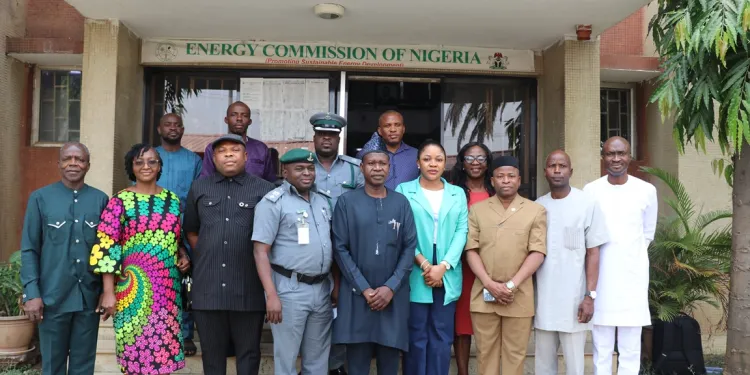A NATIONAL COMMITTEE IS REVIEWING THE WORK PLAN TO ADVANCE CLIMATE-FRIENDLY COOLING SOLUTIONS
The national technical committee for the Scaling-up Energy Efficiency and Climate-Friendly Cooling Solutions in Nigeria’s NDC project gathered in Abuja to discuss and assess the project’s work plan for 2024.
This collaborative committee, formed by the Energy Commission of Nigeria (ECN) and the United Nations Environment Programme (UNEP) with financial support from the Clean Cooling Collaborative (CCC), aims to promote energy-efficient and climate-friendly cooling solutions throughout Nigeria.
Comprising experts from various organizations, the technical committee serves as a platform for collaboration, knowledge sharing, and strategy development to expand sustainable cooling practices.
The meeting provided an opportunity for stakeholders to coordinate their efforts, ensuring a unified approach to achieving the project’s objectives for climate-friendly cooling solutions.
Dr. Mustapha Abdullahi, the director-general of the ECN, the implementing institution for the project, emphasized the committee’s main goal. He highlighted the primary objective of accelerating the adoption of energy-efficient air conditioners with climate-friendly, low-GWP (global warming potential) refrigerants in residential, commercial, and public buildings.
This strategic shift aims to make a significant contribution to Nigeria’s climate targets outlined in its Nationally Determined Contributions (NDC).
The meeting represents a crucial step in the sustainable cooling project’s implementation, showcasing the commitment of both ECN and UNEP to advancing climate-friendly solutions in Nigeria.
By promoting collaboration among experts and stakeholders, the committee ensures a comprehensive and sustainable approach to meeting climate targets in the country.
As the project progresses, the collaborative efforts of the committee will play a pivotal role in addressing challenges associated with transitioning to energy-efficient and climate-friendly cooling solutions.
The commitment to a cost-effective and sustainable transition underscores the importance of aligning climate goals with practical, implementable strategies.
The committee meeting demonstrated a concerted effort to drive positive change in Nigeria’s cooling practices.
Leveraging the expertise of diverse stakeholders, ECN and UNEP aim to contribute meaningfully to the country’s climate resilience and sustainability.
The success of the project relies on such collaborative endeavors, reflecting a shared commitment to address climate challenges through innovative and impactful initiatives.
News Reports: Peter Oluka
News Source: Techeconomy

